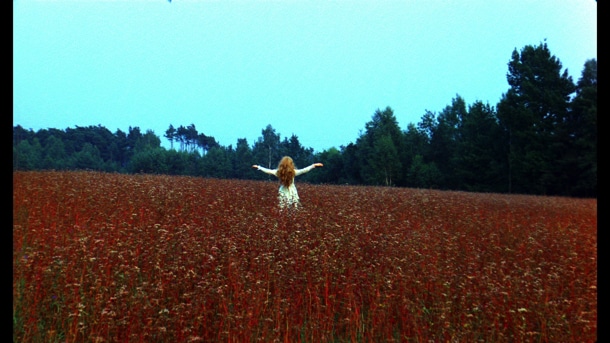
AUSTERIA (THE INN, 1983) is set in the Galician (now Polish) border with Russia in the first days of World War I. Jerzy Kawalerowicz’s film of the novel of the same name by Julian Stryjkowki (who also co-wrote the script) is controversial because of its description of Jewish pacifism, which led to mass slaughter by Russian soldiers, and its parallels with the Holocaust. AUSTERIA is emblematic of the difficulties Polish filmmakers had after World II in dealing with the lack of Polish resistance to the Holocaust committed in their own country, and the fact that more than a thousand Jews, many of them survivors of the concentration camps, were murdered in Poland after the Second World War.
In the film, a Jewish innkeeper Tag (Franciszek Pieczka) is trying to keep some sort of order during the first hectic days of the war. Austrian troops manning the border, are on the retreat, Hassidic Jews from an nearby village arrive, panic stricken. An Austrian baroness and her family seem to have nothing else to do than to settle private scores; and a Hungarian hussar, who has lost contact with his regiment, is more interested in sexual escapades than finding his way back to his troops. A young Jewish village girl is killed and the rituals of her funeral are causing difficulties. The Hassidic Jews discuss Talmudic questions, before being slaughtered by the advancing Russian soldiers in a nearby lake. Whilst the film is a realistic portrait of the chaos and viciousness of the emerging war, its underlying ideology that Jews were slaughtered because they did not put up resistance is apologetic – centuries of pogroms in Poland are proof of a violent anti-Semitism. AS
SCREENING DURING KINOTEKA POLISH FILM FESTIVAL | UNTIL 29 MAY 2015 | 13 MAY 2015